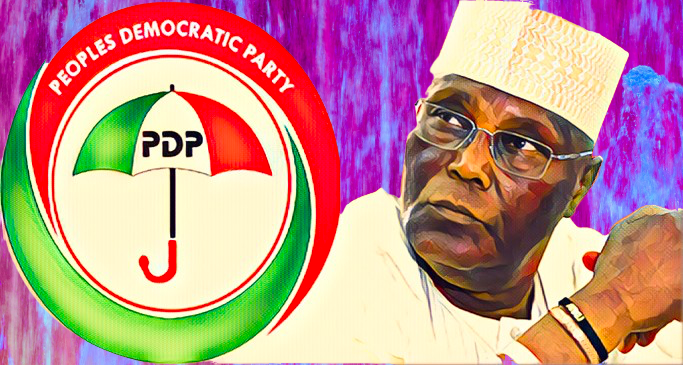KEY POINTS
-
Atiku Abubakar has resigned from the PDP, citing irreconcilable differences and a shift away from founding principles.
-
He has joined a powerful new political coalition under the ADC with Peter Obi, El-Rufai, and others.
-
His resignation may signal the rise of a Third Force in Nigerian politics ahead of the 2027 elections.
Former Nigerian Vice President Atiku Abubakar has officially resigned from the Peoples Democratic Party (PDP), ending a decades-long affiliation with the party he helped establish.
The announcement came through a formal letter dated July 14, 2025, and addressed to the Chairman of PDP, Jada 1 Ward in Adamawa State. The resignation letter was made public on Tuesday, July 16, 2025, by media publisher Dele Momodu.
Atiku, who served as Nigeria’s Vice President from 1999 to 2007 under the PDP-led administration of President Olusegun Obasanjo, had twice contested for the presidency on the platform of the party. He was widely seen as one of its most influential figures and a key architect of its early dominance in Nigeria’s Fourth Republic.
“I am writing to formally resign my membership from the Peoples Democratic Party (PDP) with immediate effect,” Atiku stated in the letter. “Serving two full terms as Vice President of Nigeria and being a Presidential candidate twice has been one of the most significant chapters of my life.”
He described the decision as heartbreaking, given his deep roots in the party. However, Atiku maintained that the PDP had deviated too far from the ideals on which it was founded.
Atiku says PDP has lost its way
Atiku cited “irreconcilable differences” and “the current trajectory the Party has taken” as the reasons for his departure. “It is with a heavy heart that I resign, recognising the irreconcilable differences that have emerged,” he wrote. “I wish the Party and its leadership all the best in the future.”
Sources close to the former Vice President confirm that his exit had been in the works following internal disputes in the PDP’s 2023 and 2024 national conventions, where Atiku reportedly felt sidelined by rising factions within the party. His efforts to recalibrate the PDP’s national outlook and rally support around restructuring and inclusivity met considerable resistance.
Atiku’s resignation aligns with the recent formation of a powerful opposition alliance under the African Democratic Congress (ADC). This emerging coalition is touted as a “Third Force” to challenge both the ruling All Progressives Congress (APC) and the now-weakened PDP ahead of the 2027 general elections.
Prominent political heavyweights have already joined the ADC-led movement. These include former Labour Party presidential candidate Peter Obi, ex-FCT Minister Nasir El-Rufai, former Senate President David Mark, ex-Transport Minister Rotimi Amaechi, and former Osun State Governor Rauf Aregbesola. Analysts say the coalition could redefine Nigeria’s political landscape and appeal to voters disenchanted with traditional party politics.
While the PDP has yet to issue an official response to Atiku’s exit, insiders suggest that the party is bracing for further defections. Party leaders have reportedly convened emergency meetings to assess the impact and craft a public response.
Political watchers say Atiku’s move signals a deeper fragmentation of Nigeria’s two-party dominance. His experience, national reach, and consistent advocacy for restructuring the country may boost the credibility of the emerging political bloc.
The coming months are expected to test the durability of the coalition and whether its diverse players can unite behind a single ideology and candidate. Whether Atiku himself will once again seek the presidency under the new platform remains to be seen.



